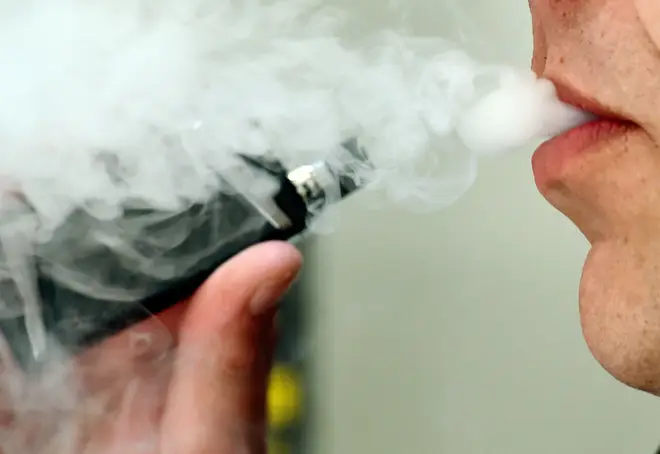
Shelagh Fogarty 1pm - 4pm
3 April 2024, 13:52 | Updated: 3 April 2024, 13:53

Vaping may cause a "substantial" increase in the risk of heart failure, new research suggests.
People who have vaped at any point were 19 per cent more likely to develop heart failure compared with those who never used e-cigarettes, the findings show.
Scientists tested more than 175,000 adults in the US, both vapers and non-vapers, over four years in one of the largest studies yet to compare the effects of vaping on the heart.
In total, 3,242 participants suffered from heart failure during the study period, but those who had vaped were a fifth more likely to develop the condition than those who had never touched an e-cigarette.
Dr Yakubu Bene-Alhasan, the study’s lead author from MedStar Health in Baltimore, US, said: “More and more studies are linking e-cigarettes to harmful effects and finding that it might not be as safe as previously thought.
“The difference we saw was substantial. It’s worth considering the consequences to your health, especially with regard to heart health.”

Read More: Disposable vapes to be banned by Government as part of crack-down on youngsters vaping
Read More: New tax on vapes announced in Budget
Heart failure is a condition which causes the organ to become unable to properly pump blood around the body.
It is estimated more one million people in the UK have heart failure, according to the British Heart Foundation with around 20,000 new cases diagnosed each year.
Symptoms include exhaustion and breathlessness and there are very few treatment options.
The study’s results also showed that vapers were at increased risk of heart failure with preserved ejection fraction. This is a common type of the condition where the heart muscle becomes stiff and does not properly fill with blood between contractions.
However, there was no link to heart failure with reduced ejection fraction, where blood is constrained even further. Rates of preserved ejection fraction have risen in recent decades and age, obesity and diabetes are all factors that put people at greater risk.
However, it’s not clear why vaping may also increase the risk.
Last month, the UK Government introduced legislation aimed at curbing youth smoking with the Tobacco and Vapes Bill, which aims to tackle youth vaping by introducing new powers to restrict vape flavours and packaging intentionally marketed at children.
Separately, it has committed to ban disposable vapes from April 2025 under environmental laws.